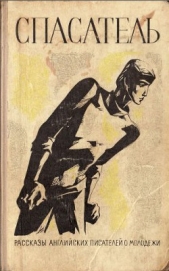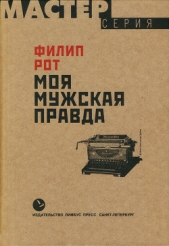Заметки к истории болезни

Заметки к истории болезни читать книгу онлайн
Внимание! Книга может содержать контент только для совершеннолетних. Для несовершеннолетних чтение данного контента СТРОГО ЗАПРЕЩЕНО! Если в книге присутствует наличие пропаганды ЛГБТ и другого, запрещенного контента - просьба написать на почту [email protected] для удаления материала
She went home silent, thinking of Tony. When she thought of him she needed to cry. She also needed to hurt him.
But she told her parents she was engaged to Stanley, who would be an architect. They would have their own house, in (they thought) Hemel Hempstead. He owned a car. He was coming to tea on Sunday. Her mother forgot the dukes and the film producers before the announcement ended: her father listened judiciously, then congratulated her. He had been going to a football match on Sunday, but agreed, after persuasion, that this was a good-enough reason to stay home.
Her mother then began discussing, with deference to Maureen's superior knowledge, how to manage next Sunday to best advantage. For four days she went on about it. But she was talking to herself. Her husband listened, said nothing. And Maureen listened, critically, like her father. Mrs Watson began clamouring for a definite opinion on what sort of cake to serve on Sunday. But Maureen had no opin ion. She sat, quiet, looking at her mother, a largish ageing woman, her ex-fair hair dyed yellow, her flesh guttering. She was like an excited child, and it was not attractive. Stupid, stupid, stupid — that's all you are, thought Maureen.
As for Maureen, if anyone had made the comparison, she was 'sulking' as she had before over being a model and having to be drilled out of her 'voice'. She said nothing but: 'It'll be all right, Mum, don't get so worked up.' Which was true, because Stanley knew what to expect: he knew why he had not been invited to meet her parents until properly hooked. He would have done the same in her place. He was doing the same: she was going to meet his parents the week after. What Mrs Watson, Mr Watson, wore on Sunday; whether sandwiches or cake were served; whether there were fresh or artificial flowers — none of it matterd. The Watsons were part of the bargain: what he was paying in return for publicly owning the most covetable woman anywhere they were likely to be; and for the right to sleep with her after the public display.
Meanwhile Maureen said not a word. She sat on her bed looking at nothing in particular. Once or twice she examined her face in the mirror, and even put cream on it. And she cut out a dress, but put it aside.
On Sunday Mrs Watson laid tea for four, using her own judgment since Maureen was too deeply in love (so she told everyone) to notice such trifles. At four Stanley was expected, and at 3.55 Maureen descended to the living room. She wore: a faded pink dress from three summers before; her mother's cretonne overall used for housework; and a piece of cloth tied round her hair that might very well have been a duster. At any rate, it was a faded grey. She had put on a pair of her mother's old shoes. She could not be called plain; but she looked like her own faded elder sister, dressed for a hard day's spring cleaning.
Her father, knowledgeable, said nothing: he lowered the paper, examined her, let out a short laugh, and lifted it again. Mrs Watson, understanding at last that this was a real crisis, burst into tears. Stanley arrived before Ms Watson could stop herself crying. He nearly said to Mrs Watson: 'I didn't know Maureen had an older sister.' Maureen sat listless at one end of the table; Mr Watson sat grinning at the other, and Mrs Watson sniffed and wiped her eyes between the two.
Maureen said: 'Hello, Stanley, meet my father and mother.' He shook their hands and stared at her. She did not meet his eyes: rather, the surface of her blue gaze met the furious, incredulous, hurt pounce of his glares at her. Maureen poured tea, offered him sandwiches and cake, and made conversation about the weather, and the prices of food, and the dangers of giving even good customers credit in the shop. He sat there, a well-set-up young man, with his brushed hair, his brushed moustache, his checked brown cloth jacket, and a face flaming with anger and affront. He said nothing, but Maureen on, her voice trailing and cool. At five o'clock, Mrs Watson again burst into tears, her whole body shaking, and Stanley brusquely left.
Mr Watson said: Well, why did you lead him on, then?' and turned on the television. Mrs Watson went to lie down. Maureen, in her own room, took off the various items of her disguise, and returned them to her mother's room. 'Don't cry, Mum. What are you carrying on like that for? What's the matter?' Then she dressed extremely carefully in a new white linen suit, brown shoes, beige blouse. She did her hair and her face, and sat looking at herself. The last two hours (or week) hit her, and her stomach hurt so that she doubled up. She cried; but the tears smeared her makeup, and she stopped herself with the side of a fist against her mouth.
It now seemed to her that for the last week she had simply not been Maureen; she had been someone else. What had she done it for? Why? Then she knew it was for Tony: during all that ridiculous scene at the tea table, she had imagined Tony looking on, grinning, but understanding her.
She now wiped her face quite clear of tears, and went quietly out of the house so as not to disturb her father and mother. There was a telephone booth at the corner. She stepped calm and aloof along the street, her mouth held (as it always was) in an almost smile. Bert from the grocers shop said: 'Hey, Maureen, that's a smasher. Who's it for?' And she gave him the smile and the toss of her head that went with the street and said: 'You, Bert, it's all for you.' She went to the telephone booth thinking of Tony. She felt as if he already knew what had happened. She would say: 'Let's go and dance, Tony.' He would say: Where shall i meet you?' She dialled his number, and it rang and it rang. She stood holding the receiver, waiting. About ten minutes — more. Slowly she replaced it. He bad let her down. He had been telling her, in words and without, to be something, to stay something, and now he did not care, he had let her down.
Maureen quietened herself and telephoned Stanley.
All right then, if that's how you want it, she said to Tony.
Stanley answered, and she said amiably: 'Hello.'
Silence. She could hear him breathing, fast. She could see his affronted face.
'Well, aren't you going to say anything?' She tried to make this casual, but she could hear the fear in her voice. Oh yes, she could lose him and probably had. To hide the fear she said: 'Can't you take a joke, Stanley?' and laughed.
'A joke!'
She laughed. Not bad, it sounded all right.
'I thought you'd gone off your nut, clean off your rocker…' He was breathing in and out, a rasping noise. She was reminded of his hot breathing down her neck and her arms. Her own breath quickened, even while she thought: I don't like him, I really don't like him at all… and she said softly: 'Oh Stan, I was having a bit of a giggle, that's all.'
Silence. Now, this was the crucial moment.
'Oh Stan, can't you see — I thought is was all just boring, that's all it was.' She laughed again.
He said: 'Nice for your parents, I don't think.'
'Oh they don't mind — they laughed after you'd left, though first they were cross.' She added hastily, afraid he might think they were laughing at him: 'They're used to me, that's all it is.'
Another long silence. With all her willpower she insisted that he should soften. But he said nothing, merely breathed in and out, into the receiver.
'Stanley, it was only a joke, you aren't really angry, are you, Stanley?' The tears sounded in her voice now, and she judged it better that they should.
He said, after hesitation: Well, Maureen, I just didn't like it, I don't like that kind of thing, that's all.' She allowed herself to go on crying, and after a while he said, forgiving her in a voice that was condescending and irritated: 'Well, all right, all right, there's no point in crying, is there?'
























